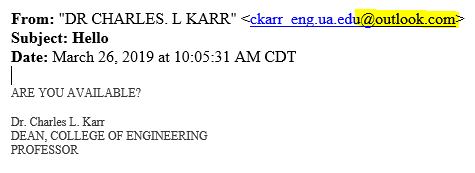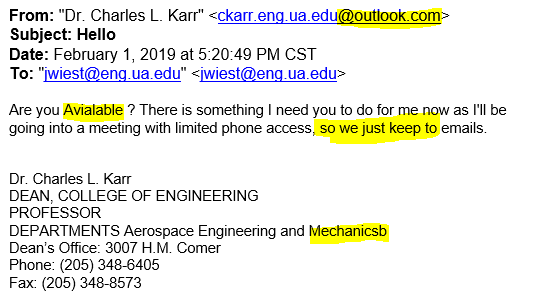Difference between revisions of "Phishing & Scams"
Jump to navigation
Jump to search
Cris Porter (talk | contribs) |
Cris Porter (talk | contribs) |
||
| Line 15: | Line 15: | ||
== Phishing / scam examples == | == Phishing / scam examples == | ||
| + | [[File:Karr-phishing-Mar2019.PNG|frame|100px|left]] | ||
[[File:karr-scam-email.PNG|frame|100px|left]] | [[File:karr-scam-email.PNG|frame|100px|left]] | ||
Revision as of 17:27, 26 March 2019
Contents
About Phishing
From UA OIT: Phishing is a form of social engineering that uses email or websites to pose as a trustworthy organization in order to access your data. Most commonly we see phishing attacks in email. Scammers or hackers will try and pose as an organization you trust in order to trick you into giving them sensitive data like a username, password, social security number or credit card information.
Tips to identify Phishing
When you get an email that just doesn’t feel right, follow the tips below to avoid becoming a victim of a phishing attack.
- Check the email address. If it is supposed to be from UA then it will end in ua.edu
- Hover over (don't click) any links in the email to see where it is actually going
- Watch for poor spelling and grammar
- Beware of urgent or threatening language
What to do if you suspect phishing
If you receive an email that you suspect is a phishing attempt, forward it to support@eng.ua.edu. We will contact you and let you know what to do.

